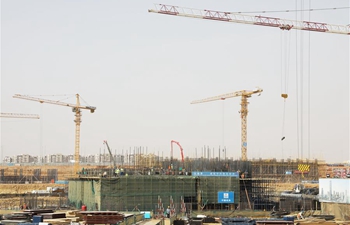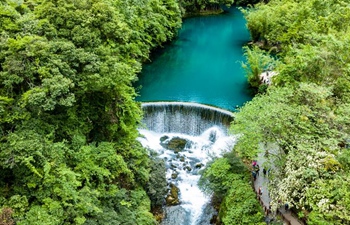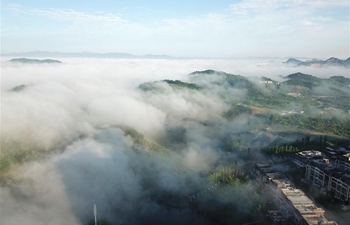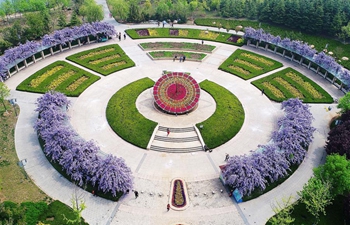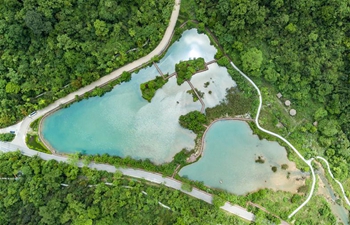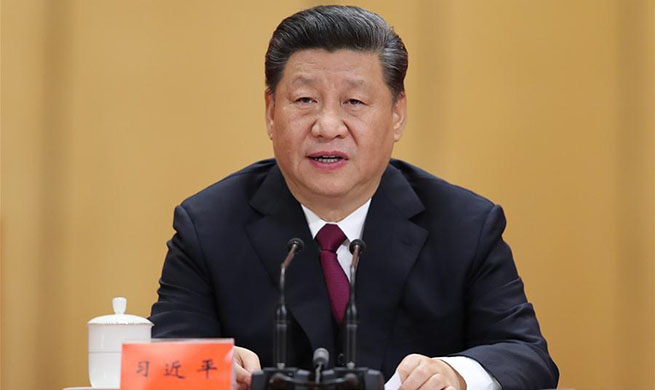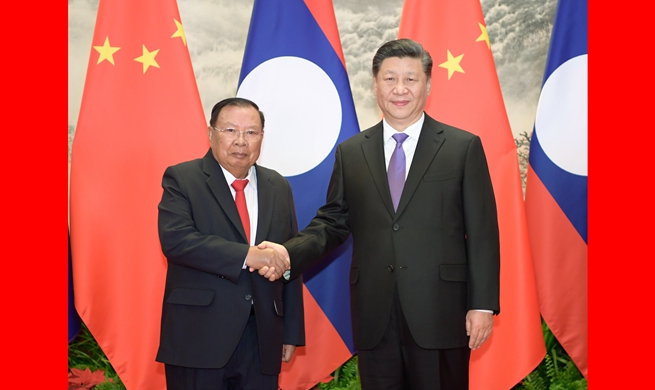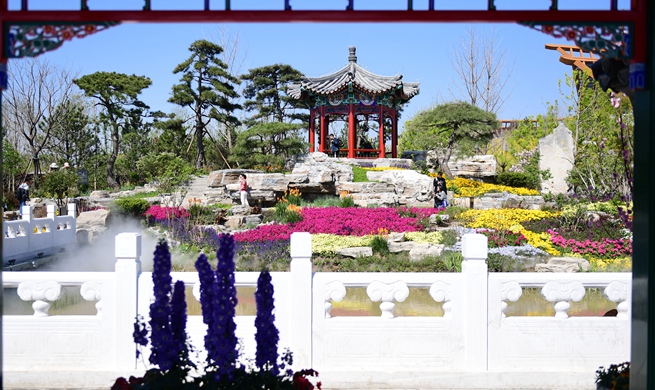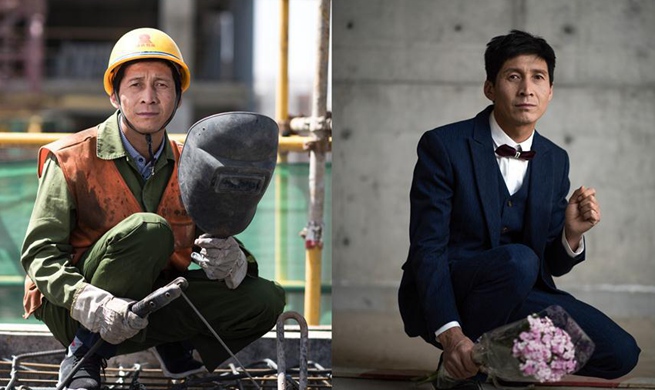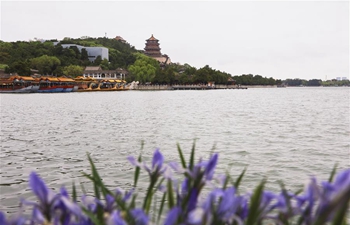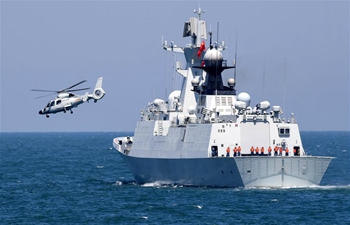ANKARA, May 1 (Xinhua) -- Turkey's Foreign Minister Mevlut Cavusoglu paid a visit to Iraq last weekend in a bid to enhance bilateral trade and energy cooperation, and seek business opportunities in the reconstruction of Iraq.
Following his visit in Baghdad, Cavusoglu said Turkey is targeting a trade volume of 20 billion U.S. dollars with Iraq.
"We need a second door to increase our trade. And this door needs to be opened in order for Iraq to be a trade center connecting the Gulf to Europe through Turkey," the minister said on his Twitter account after talks with Iraqi officials, referring to the years-long plan for Ovakoy cross-border gate, which lies between Turkey and Iraq's autonomous Kurdish administration in the north.
The Turkish minister held talks with many Iraqi politicians, from the officials of Baghdad central government, to the officials of Basra and Erbil, the de-facto capital of Kurdistan Regional Government (KRG).
As part of Turkey's ambitions engagement in its neighboring country which is trying to get over with years of struggle against the Islamic State, Cavusoglu unveiled plans to reopen consulates in Mosul and Basra provinces and to open new ones in Kirkuk and Najaf.
The Turkish top diplomat also announced that Turkish President Recep Tayyip Erdogan would pay an official visit to Iraq this year for a high-level meeting with Iraqi President Bahram Salih. Iraqi Prime Minister Adil Abdul Mahdi is also expected to visit Turkey in the coming months.
Turkey has offered a 5-billion-U.S. dollar loan to Iraq for its reconstruction. Turkish businesses are also seeking to participate in the investment and rebuilding projects in Iraq, which are estimated to cost some 88 billion dollars.
On April 25, Turkey and Iraq held a construction forum for the rebuilding of Iraq. Turkish contractors have signed important deals worth 90 billion dollars.
Nearly 100 Turkish construction companies will attend the Re-Construct Iraq International Exhibition for Construction and Power Industries, which will take place in the northern Iraqi province of Erbil on June 26-29.
Iraq is a crucial market for Turkey, according to Jale Ozgenturk, economy columnist of daily Hurriyet.
She argued that both countries are expected to put the economic ties back on track after a meeting was held between Erdogan and Salih in January.
Ozgenturk noted that Turkish exporters and contractors are waiting for the Iraqi government to launch the reconstruction projects.
Emin Taha, chair of Turkey-Iraq Business Council, said an increase of 20-25 percent in trade with Iraq is expected by the end of 2019.
Turkey's trade with Iraq stood at 11 billion dollars in 2013, but decreased dramatically in 2018 mainly due to the war declared against the IS group. The political ties also saw ups and downs during the years, said Taha.
Since 2015, hundreds of Turkish soldiers have been deployed in Bashiqa camp, some 30 km northeast of the Iraqi northern city of Mosul, triggering a dispute between Baghdad and Ankara, as Baghdad repeatedly said Turkish forces violated Iraq's sovereignty by entering the country without permission.
Moreover, secret oil accords between Turkey and autonomous administration of Iraqi Kurds, who exported its oil independently without Iraq's central government via loading terminals at Ceyhan of Turkey's Mediterranean coast, have infuriated Baghdad and prompted it to file an arbitration case against Ankara in 2014.
However, an independence referendum of the KRG in 2017 paved the way for rapprochement between Ankara and Baghdad as they both fiercely opposed the "illegitimate" referendum.
Cavusoglu's visit to Erbil was the first since the referendum and aims to restore ties with Iraqi Kurds as well in the north, where he met with several KRG senior officials, including the Kurdish leader Nechirvan Barzani.
His visit came after the United States stopped issuing waivers to countries, including Turkey, that import Iranian oil. So Turkey is looking for alternative suppliers, such as Iraq which has rich oil reserves.
Ankara eyes oil-rich provinces of Basra and Kirkuk where a pipeline was operating since 1976 but ceased operation after it was damaged in the fight against the IS.




